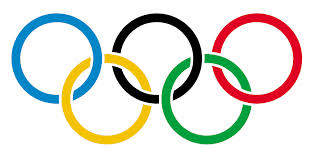New Delhi, Feb 11: International Olympic Committee (IOC) within days of conducting a fresh election in the IOA. Reuters
More than a year after being shunted out of the Olympic movement due to tainted officials, India was today welcomed back by the International Olympic Committee (IOC) within days of conducting a fresh election in the IOA.
The IOC lifted the 14-month old ban on India after the Indian Olympic Association (IOA) barred charge-framed officials from its fresh election held on Sunday in which World Squash Federation chief and younger brother of BCCI boss N Srinivasan, N Ramachandran, was elected as the president.
"The IOC has informed us through telephone that the ban on India has been lifted," newly-elected IOA Secretary General Rajeev Mehta told PTI.
The decision comes after the IOC's three observers for the elections left Indian shores "satisfied with the IOA elections promising to submit a "favourable report to the IOC President".
Jerome Poivey, IOC's head of institutional relations, event went on to state that the amended IOA constitution was one of the best in the world and it should be implemented fully.
All India Tennis Association (AITA) chief Anil Khanna was elected Treasurer in the polls which marked the exit of corruption-tainted Abhay Singh Chautala and Lalit Bhanot from the IOA.
It all started 14 months ago when on December 4, 2012, the IOC suspended the IOA for adhering to the government's Sports Code and for allowing tainted persons to take part in the election process.
In an act of defiance, IOA went ahead with the polls next day. The world body refused to recognise Chautala and his team of office bearers.
The IOC later proposed a meeting with the IOA and government representatives but maintained that the Indian body must hold its elections solely under Olympic Charter to return to the Olympic fold.
After three postponements and controversy over the participation of two members representing the suspended IOA, the meeting took place on May 15 last at Lausanne, Switzerland with Sports Minister Jitendra Singh and Beijing Olympics gold winner shooter Abhinav Bindra attending it.
The IOC issued the roadmap for India's return to the Olympic fold, asking IOA to amend its constitution before July 15 and elect new office bearers by September 1 last, both under the supervision of the world body. On August 15 last year, IOC stated that tainted persons will no longer be eligible to contest IOA elections.
But, a defiant IOA refused to implement the provision, saying that it had to follow the law of the land. The IOA even proposed to dilute the contentious clause, saying the chargesheet clause must apply only to convicted persons.
But the IOC shot down any compromise formula and asked the IOA to sack "charge-framed" officials through constitutional amendments by October 31 and conduct fresh elections by December 15 last. The IOC later agreed to IOA's proposal to hold elections today after IOA agreed to bar charge-framed persons from contesting the polls.





Comments
Add new comment